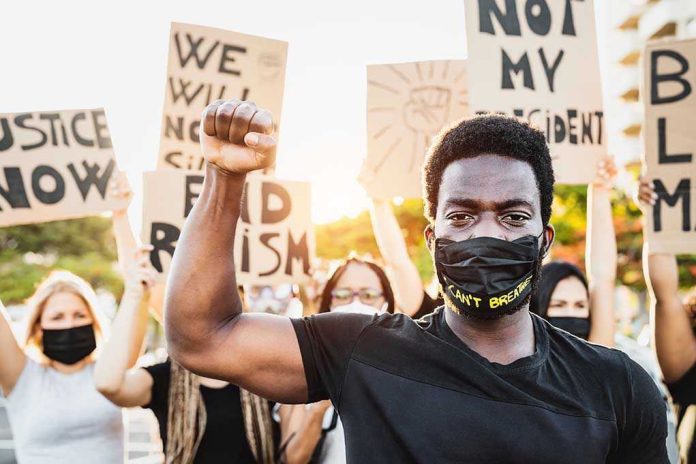
Donors’ trust in high-profile activist groups has been shattered as a prominent Black Lives Matter-linked leader admits to defrauding supporters and misusing over a million dollars in charitable funds meant for social justice.
Story Snapshot
- Boston activist Monica Cannon-Grant pleads guilty to federal charges of defrauding donors, including Black Lives Matter.
- Funds intended for community programs were diverted to personal luxury expenses and pandemic relief fraud.
- The scandal deepens public skepticism toward nonprofit oversight and high-profile activist movements.
- Calls grow for stricter accountability and transparency in charitable organizations to protect donor trust.
Prominent BLM-Linked Leader Pleads Guilty to Defrauding Donors
Monica Cannon-Grant, a once-celebrated Boston activist and founder of Violence in Boston, has pleaded guilty to federal fraud charges after a high-profile investigation exposed the misuse of more than $1 million in donations and grants. These funds, solicited under the banner of supporting community violence prevention and racial justice, were instead diverted to cover personal expenses, including luxury purchases and improper pandemic relief claims. This case stands out for its scale and the direct betrayal of donors and organizations, including Black Lives Matter, who invested in her nonprofit’s mission.
Cannon-Grant’s rise coincided with the 2020 protests following George Floyd’s death, rapidly positioning her as a leading voice in Boston’s Black Lives Matter movement. However, increased donations and visibility brought scrutiny. Federal authorities began investigating significant financial discrepancies in Violence in Boston’s accounts, ultimately revealing a pattern of personal enrichment at the expense of charitable intentions. The indictment detailed not only the misuse of charitable funds but also fraudulent acquisition of pandemic relief resources, compounding the severity of the charges and amplifying the community’s sense of betrayal.
Nonprofit Accountability and Donor Trust Eroded
The repercussions of Cannon-Grant’s guilty plea extend far beyond her organization. Donors—ranging from individuals to larger entities like Black Lives Matter—contributed in good faith, expecting their support to drive community change. Instead, those resources funded personal luxuries and left intended beneficiaries without critical services. The scandal has triggered a wave of skepticism toward grassroots organizations associated with high-profile movements, raising questions about financial oversight, governance, and the very legitimacy of activist-led nonprofits. Calls for rigorous transparency and regulatory reform have intensified, as many seek assurances that their charitable giving will not be similarly abused.
Community members, especially in Boston’s Black community, now face the dual blow of lost services and increased skepticism from potential supporters. The fallout has made it harder for legitimate organizations to secure funding, as donors hesitate in the wake of such a public breach of trust. For those who relied on Violence in Boston’s programs, the abrupt collapse of the nonprofit has left a void in much-needed local support and advocacy. The scandal’s broader effect is a chilling one: it threatens the future of grassroots activism by undermining the faith that sustains it.
Legal Proceedings and Broader Sector Impact
Following her formal request to change her plea, Cannon-Grant now faces sentencing, with federal prosecutors emphasizing the seriousness and scale of her fraud. Meanwhile, the nonprofit’s operations have been decimated, and ongoing investigations seek to recover assets and determine restitution for victims. Legal analysts and nonprofit experts warn that such high-profile cases can have outsized effects on donor confidence, potentially resulting in decreased support for genuinely impactful causes. This scandal has reignited debates over nonprofit regulation, with some experts advocating for stricter internal controls and systemic reforms to prevent future abuses of donor trust.
BLM-linked activist admits conning donors to fund her lavish lifestyle
Source: New York Post https://t.co/82R85WDgTU— Fred S Loquasto (@FLoquasto) September 23, 2025
While this case is local in focus, it echoes broader concerns about mismanagement within organizations linked to national activist movements. Previous incidents and media scrutiny have already raised questions about the stewardship of donated funds in the social justice sector. The Cannon-Grant case, however, stands out for the magnitude of personal enrichment and the direct, corroborated evidence provided by federal investigators. As the community grapples with the aftermath, the demand for accountability, transparency, and donor protections has never been more pronounced.
Sources:
WGOW-FM: Boston BLM activist to plead guilty to federal fraud







